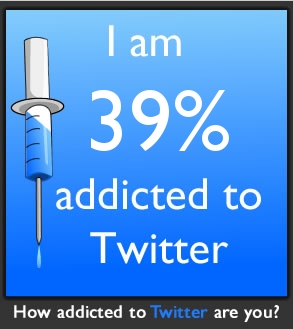I joined the Twitter community just a week ago. Although at first I was skeptical about this tool, the eye-opener blogposts on the political use of Twitter written by Jon Worth and Julien Frisch talked me into paying a little more attention to it. A couple of days later Bente Kalsnes's post on political geeks in Europe convinced me Twitter was something to consider seriously. Now I am hooked. The other day I was juggling as usual between the windows of Gmail, Facebook, Twitter and my RSS reader, to name but a few, when suddenly it hit me: ten years ago, none of that was part of my life, and of anybody’s either as a matter of fact.

When I was a teenager in the nineties, just a little more than ten years ago, we had no mobile phones, and hardly any personal computers. In France, we were still using the Minitel. Mobile phones only started to widespread when I went to university. Our teachers still hardly dared to ask to hand in typed papers instead of hand-written ones. Just a few of us actually owned a computer. Ten years later, we are all emailing, browsing the web, sending text messages on our mobile phones, having hundreds of friends on Facebook, posting our ideas on blogs, and participating in lively twittering micro-discussions with people we’ve never met. All that happened within 10 years, and it has profoundly changed our relationship to the world, and especially our relationship with the political sphere.
We are witnessing the beginning of a whole new era. The digital revolution will probably be seen in the history of the public space as the most significant milestone since the invention of movable type printing by Gutenberg in the 15th century. Anyone can have access to any kind of information through a simple internet connection. Information has become a common good. It is not anymore a source of power only reserved for the educated. This is deeply changing the political equilibrium. Anyone can now influence the public debate rather easily, provided they are a little witty, and understand how to make a strategic use of web tools such as blogs, Facebook and Twitter. Information is not top-down anymore. Information comes from anywhere and from anyone. The public sphere is becoming more and more horizontal. This is having a huge impact on our democracies. For decades, political debates have been led by political parties, journalists, and intellectuals. Now anyone can voice their opinion on the web and get a lot of attention. There is no monopoly of the information anymore. We are just at the beginning of a new era. The tech people call it the digital society. The Commission officials call it the information society. I would call it the open society.
This evolution of society is causing a serious challenge to mainstream political parties. These organisations have heavy structures. The bigger they got, the most top-down they went in the way they operated internally. That doesn’t work anymore because thanks to the Internet revolution, the information is not the monopoly of the few. But mainstream political parties are so frozen in time in the way they operate that they have been having trouble integrating the Internet revolution. Of course, they all try and use the latest technologies, have fancy websites with all the coolest functionalities. However they haven’t managed to integrate the input these new functionalities bring in. They just don’t get it. It’s not a matter of integrating the new technologies. It’s a matter of understanding how much these technologies have created a whole new culture, a wide-open culture, based on the widespread availability of information and the possibility of all to feed the society with more.

This blogpost is just the beginning of a long series. I feel the topic of the open society is essential to understanding the changing political landscape we are witnessing. The success of the Greens in France, the election of the Pirate Party in Sweden, and all the talks on the free sharing of data on the Internet are just other indicators of that move towards a new type of society, which is leading to the necessity of thinking new ways of doing politics.
Photo 1: "Le" Minitel (groundbreaking French technology). Credits: Wikipedia Commons
Photo 2: Jump on the social media wagon. Credits: Matt Hamm on Flickr












